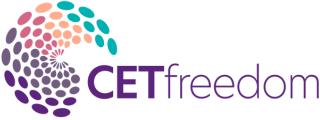
The rise of chatbots in recent years has revolutionized how businesses communicate with their customers. Chatbots have enabled companies to automate their customer service, sales, and marketing processes, providing a more personalized experience for their customers. However, as chatbots evolve, so does how they are being used.
One of the newer applications of chatbots is coaching, which is intended to help people reach their goals and improve their performance. While chatbot coaching may seem convenient and cost-effective, it may only suit some. This article will explore why chatbot coaching may not be the best choice for everyone.
Limitations of Chatbot Coaching
Chatbots have been touted as a cost-effective and efficient way to provide coaching services to people. However, there are limitations to what chatbots can do, which may impact the coaching experience’s effectiveness. Firstly, chatbots lack the human touch that is essential for effective coaching. A human coach can empathize with their client and build a rapport that fosters trust and openness.
On the other hand, chatbots are limited to pre-programmed responses and cannot adapt to their client’s unique needs and personalities. This can result in a less personalized coaching experience that may not be as effective as coaching provided by a human coach.
Importance of Personalization in Coaching
Effective coaching requires deep understanding of the client’s unique needs and goals. Human coaches can tailor their approach to the individual, considering their personality, learning style, and specific challenges.
Chatbots, conversely, are limited to pre-programmed responses that may only be appropriate for some individuals. This lack of personalization can result in a coaching experience not tailored to the client’s needs, leading to frustration and a lack of progress toward their goals.
Role of Emotions in Coaching
Coaching is about providing advice and guidance and helping clients navigate their emotions and develop a deeper understanding of themselves. Human coaches can sense and respond to their client’s emotions, providing support and guidance when needed. Chatbots, however, lack the emotional intelligence necessary for effective coaching.
They cannot sense when their client is struggling emotionally and may provide generic responses that do not address the underlying issues. This can be particularly problematic for clients with complex emotional problems, as they may require more specialized support than a chatbot can provide.
Feedback in Coaching
Feedback is an essential part of the coaching process, as it helps clients understand their strengths and weaknesses and identify areas for improvement. Human coaches can provide real-time feedback and adjust their coaching approach accordingly.
Chatbots, conversely, are limited to pre-programmed responses that may not provide the level of feedback that clients need to progress toward their goals. This lack of feedback can result in a coaching experience that feels stagnant and unproductive.
Downsides of Chatbot Coaching
While chatbot coaching may seem convenient, there are some downsides. One of the primary concerns is the lack of human connection and emotional support. Chatbots can provide information and feedback based on pre-programmed algorithms but cannot offer empathy, understanding, and genuine care. This is especially important when dealing with personal struggles.
Chatbots can only offer generalized advice and support, which may only be effective for some. A chatbot may suggest a strategy for managing stress, but it may not consider the person’s specific triggers or coping mechanisms. This can result in frustration and a feeling of being misunderstood.
Furthermore, chatbots may not be suitable for people with more complex needs or require higher support. For instance, individuals with severe mental health conditions, such as depression or anxiety disorders, may benefit more from one-on-one sessions with a mental health professional. A chatbot may not have the expertise or qualifications to provide adequate support in such cases.
Conclusion:
While chatbots have many benefits, including cost-effectiveness and efficiency, they may only be suitable for some regarding coaching. The lack of personalization, emotional intelligence, and feedback that chatbots provide can impact the effectiveness of the coaching experience.
A human coach may be a better option for those who require specialized support or are dealing with complex emotional issues. However, chatbots may be viable for those looking for a more cost-effective and convenient coaching option and do not require personalized support. Ultimately, the choice between chatbot and human coaching will depend on individual needs and goals.






